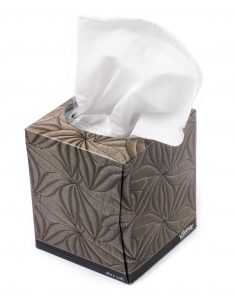 The season has arrived for running noses, sore throats and hacking coughs.
The season has arrived for running noses, sore throats and hacking coughs.
While typically not a life-threatening illness, the common cold is one of the most widespread diseases in the world and a leading cause of doctor visits and absenteeism from school and work. Beyond that, having a cold is just plain uncomfortable. So what does the evidence say about preventing and treating colds?
It turns out, there are hundreds of studies on the best ways to cope with the common cold. Here’s what the best evidence tells us:
- Unfortunately, there is no evidence that taking a Vitamin C supplement helps to prevent you from getting a cold. There is some limited evidence that taking a Vitamin C supplement when you first notice cold symptoms can help you to recover from a cold more quickly, but this evidence is not strong. Still, because Vitamin C is affordable and has few side effects, it may be worth a try.
- On the other hand, there is strong, clear evidence that zinc supplements help to shorten the duration of the common cold when taken within 24 hours of the onset of symptoms in high enough doses. The evidence also shows that zinc can help to reduce the severity of cold symptoms. But it does make some people nauseous.
- Put those humidifiers away. The data on heated, humidified air are completely split. The Cochrane Collaboration review, which included six trials with a total of 387 participants, found that in some studies inhaling steam helped symptoms and in others it did not. Overall, the authors concluded there is little credible evidence that humidified air helps.
- A review of seven trials found that over-the-counter nasal decongestants like Sudafed help. The evidence shows that a single oral dose of nasal decongestant is modestly effective for the short term relief of congestion and also provides benefits in some people after regular use over three to five days.
- There is some evidence that gargling helps. To date, there is only one randomized-controlled trial of 387 adults. But it found clear evidence that gargling with simply water helps to prevent upper respiratory tract infections.
- Get moving! A systematic review of four randomized-controlled trials found that a regular routine of moderate-intensity aerobic exercise may have preventive effects on colds. But the authors stipulate that more evidence is needed to draw a stronger conclusion.
- Hand-washing works. A systematic review found that physical barriers to transmitting the cold virus – and especially hand-washing – are effective ways to prevent colds.
The bottom-line is that there are steps you can take to reduce your risk of getting a cold this season, and to shorten your sickness if you do get one: wash your hands, try some zinc supplements, adopt a regular exercise routine and give gargling a try!



Speak Your Mind